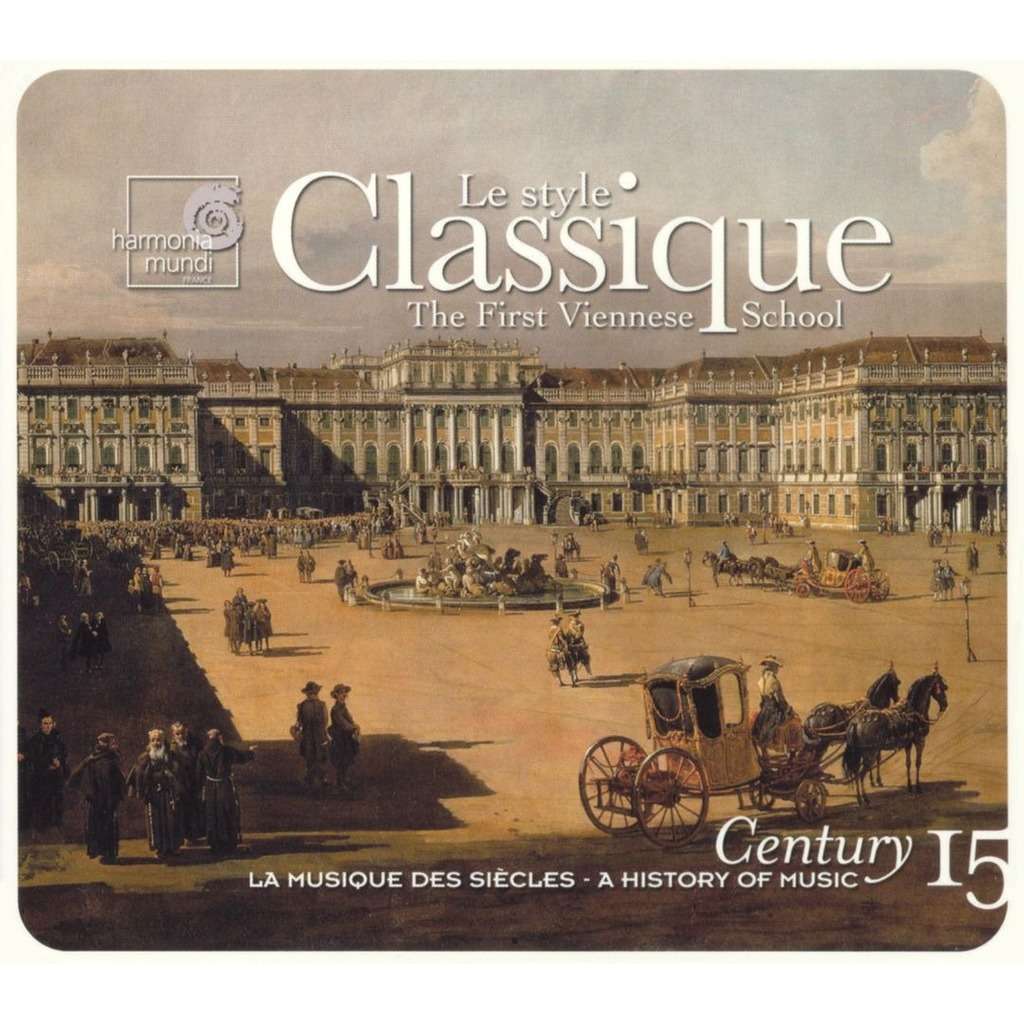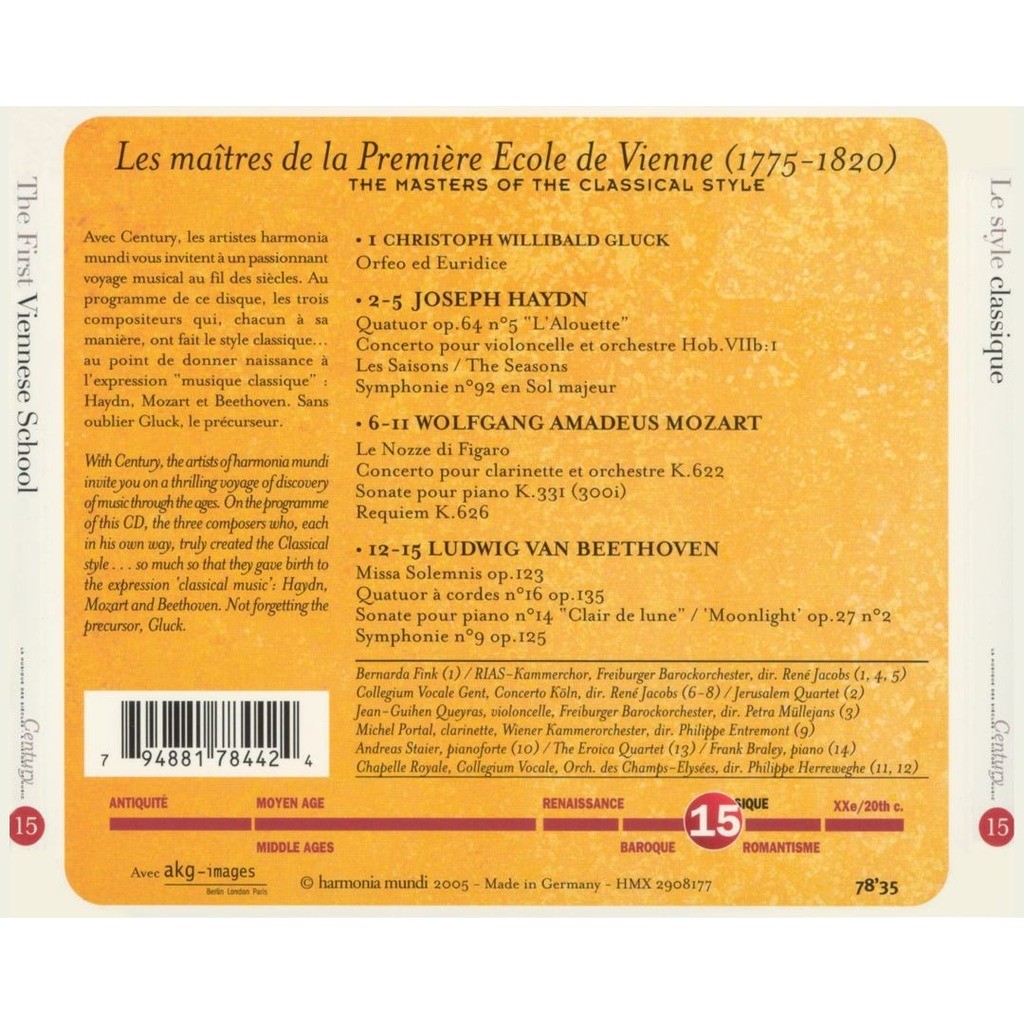
kompozytor
różni kompozytorzy
tytuł
Le Style Classique
pełny spis kompozytorów
Beethoven, Ludwig van;
Haydn, Joseph;
Mozart, Wolfgang Amadeus;
Gluck, Christoph Willibald
Haydn, Joseph;
Mozart, Wolfgang Amadeus;
Gluck, Christoph Willibald
wykonawcy
Różni wykonawcy;
Jacobs, René;
Fink, Bernarda;
Freiburger Barockorchester;
Staier, Andreas;
Eroica Quartet
Jacobs, René;
Fink, Bernarda;
Freiburger Barockorchester;
Staier, Andreas;
Eroica Quartet
nr katalogowy
HMX 2908177
opis
One of the many strong points in Harmonia Mundi's Century: A History of Music series has been its detailed introductions to the earlier periods, which are still less familiar to the majority of listeners (although maybe not for long). Of course, every action brings its equal and opposite reaction, and a single disc that purports to introduce the Classical style faces a stiff challenge. Even taking that into account, Le style classique: The First Viennese School offers an idiosyncratic selection. It is the concluding Beethoven section that will really raise the eyebrows of anybody trying to introduce a friend to classical (or Classical-era) music. With three works from the composer's profound but often, on initial hearings, bizarre late period out of four included, it presents a very strange picture of Beethoven indeed, with no music at all from the middle period of the third through eighth symphonies, and two extremely exotic late-period movements, the Sanctus from the Missa Solemnis and the transcendent-ecstasy-meets-slapstick-humor Vivace from the String Quartet No. 16 in F major, Op. 135. Even the more familiar Scherzo from the Symphony No. 9 and opening movement of the "Moonlight" Sonata are hardly illustrative of the composer's roots in Viennese classicism. The disc opens with an aria from Gluck's Orfeo ed Euridice that nicely illustrates what the new trends in Classical-era opera were all about, and the Haydn and Mozart selections are reasonable enough, although the Baroque-oriented historical-instrument ensembles that play them tend toward the dry side. But the booklet notes, another strength of this series, fall flat here, with too much discussion of exactly where the Classical period begins and ends (a futile exercise in the best of conditions) and not enough of how these composers' creative impulses interacted with the circumstances of their musical careers. Nothing on this disc constitutes a reason to give up on Harmonia Mundi's excellent series, but it's not a good choice for the listener looking for an introduction to Haydn, Mozart, and Beethoven. [-]AllMusic Review by James Manheim
nośnik
CD
gatunek
Muzyka klasyczna
producent
Harmonia Mundi
data wydania
03-10-2005
EAN / kod kreskowy
794881784424

(Produkt nie został jeszcze oceniony)
cena 38,00 zł
lubProdukt dostępny.
Wysyłka w ciągu 3 dni roboczych
Darmowa wysyłka dla zamówień powyżej 300 zł!
Darmowy kurier dla zamówień powyżej 500 zł!
sprawdź koszty wysyłkiProduktu jeszcze nie zrecenzowano, chcesz być pierwszy?
Klienci, którzy kupili ten produkt, kupili również
1 / 11
Pozostałe płyty tego kompozytora
1 / 11
Pozostałe płyty tego wykonawcy
1 / 11













































